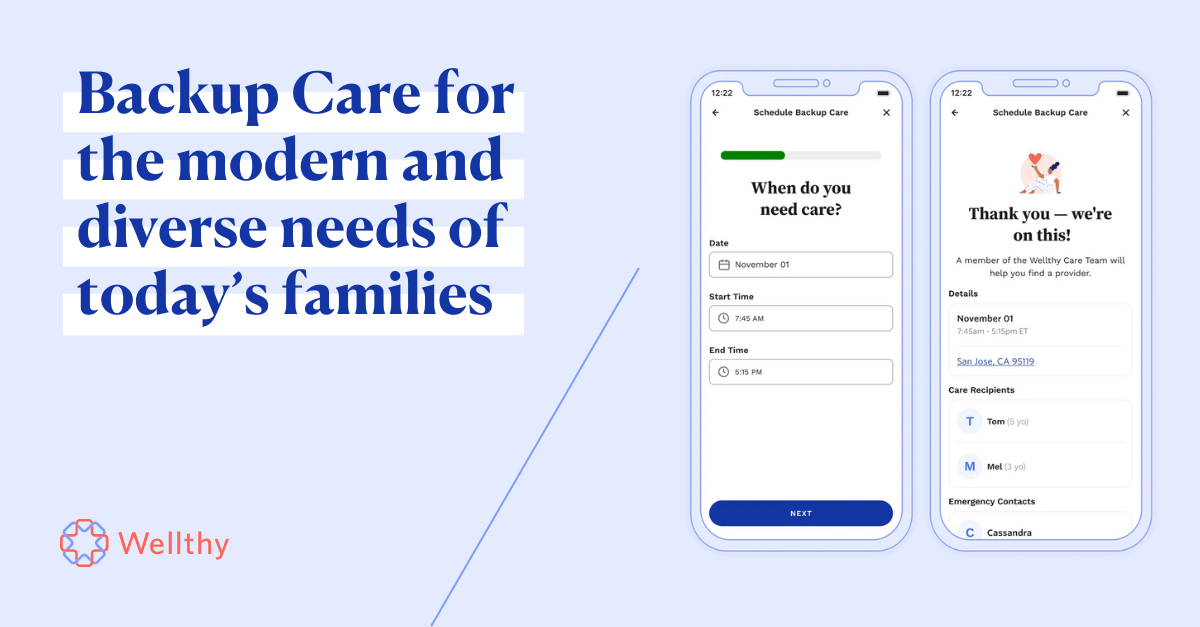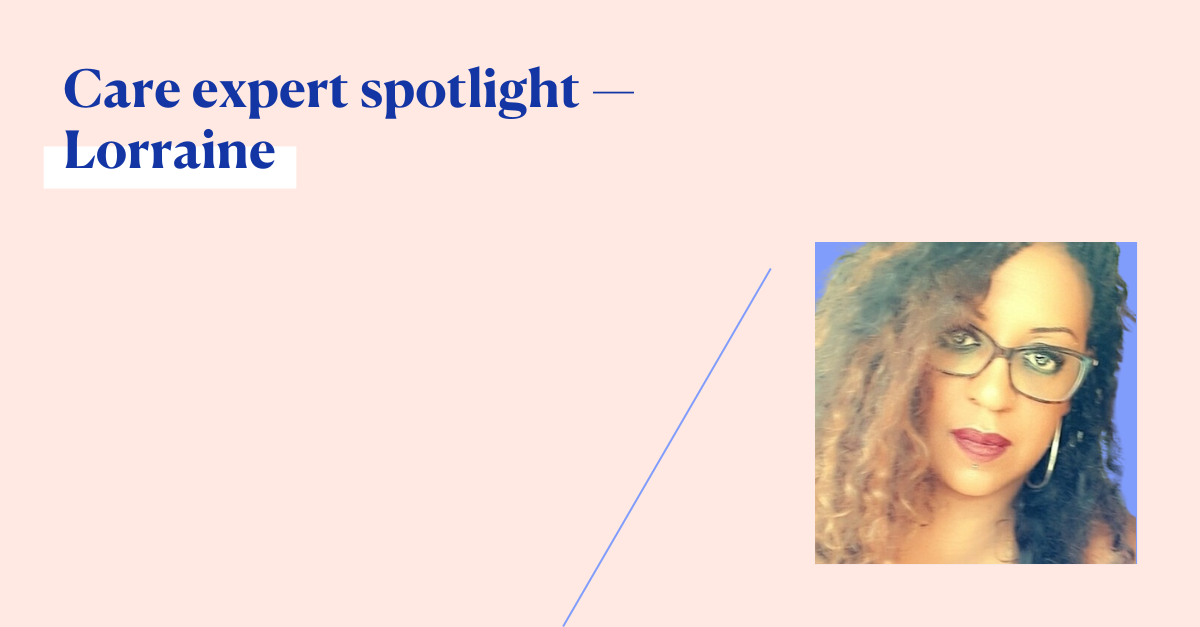With our Care Expert Spotlight series, we’re taking a peek into the lives of Wellthy's amazing care professionals.
This month we spoke with Heather, Care Coordinator specializing in aging projects. Wellthy’s team of Care Coordinators and Advisers work directly with families to understand their care needs, create a care plan, prioritize tasks, and get things done on their behalf.
Heather is also a Moderator for Wellthy Community, a peer support network for Wellthy members allowing family caregivers to connect with each other online. For more information on Wellthy Community, check out this post.
What is your background in?
I started in high school as an assistant to a geriatric physician. I went from filing paperwork to assisting medically. Then I went to nursing school and came back to his practice as a clinical supervisor.
When I moved from Ohio to Georgia, that’s when I got my start in home care. I became the director of a homecare agency for about 10 years. In this role, I did EVERYTHING. We managed about 400 different caregivers, managed building relationships with families, and tried to help families navigate different options for support. Our main goal was to keep people in their homes while having the care they needed.
One thing that people don’t know is – 98% of home care is private (not funded by the government). Sometimes VA benefits help, but for the most part you really have to dig for financial resources to help.
What is your personal caregiving story?
I was diagnosed with breast cancer at age 25. I had no support, no ideas about resources, what to do, or where to go. The providers were so overwhelmed – they felt ill-equipped to navigate me through that process. Unfortunately, I had to care for myself at a very young age.
I’ve also taken care of my parents and grandparents, so caregiving has really always been a part of my life. I find myself always taking care of a neighbor or friend who’s ill or needs support.
My neighbor is 87 and his wife died in December. It’s not even a question of if we’ll care for him – when we go to the grocery store, we see if he needs anything. When we take the trash bins out, we take his out too.
What inspires you to work in caregiving?
Being able to see things from different perspectives. Being able to save the day and help someone in a small way that makes a big impact. Even though each day looks different for me depending on what I’m working on, at the end of every day, I can say that I’ve done something to help a family.
What have members’ reactions been from working with Wellthy?
Happiness. They do a complete 180 – going from being completely overwhelmed to feeling like they have someone supporting them in their corner. Our ability to know what questions to ask, what resources to look for (i.e. the AARP Phone a Friend resource), and what steps to take during a crisis, makes a huge difference to them.
What advice would you give to someone caring for someone with an aging parent for the first time?
Start early and accept help. Don’t wait until you’re overwhelmed, in the corner crying and don’t know where to turn. It does take a village. With all the resources out there, someone is going to take advantage of them – why shouldn’t it be you? Start early so you can see what’s out there before it’s urgent and you don’t have the luxury of time.
Look into the future of how you’re going to be able to afford care – long-term care insurance benefits, what options are available to you. Form a plan in the same way that you do an advance directive. Think about how you want your future to be.
It’s also always good to get a Power of Attorney set up, especially if you don't have a spouse or child who can jump in and play that role for you.
What is one of the most memorable stories you have from working with a member?
I was working with a woman whose mother had passed away, and her father refused to accept any help. He wanted nothing to do with me or anyone during the grieving process. We made such progress and helped him so much that for two years, he and I spoke weekly until he passed away in November 2022. Because he had Wellthy’s support, he didn’t feel like a burden on his family.
We did so many amazing things for this man, but the biggest thing was that he got to stay in his own home – he got to pass away where he wanted to be. He is the reason I got my death doula certification. I feel passionately about the fact that there should be more information out there about death, dying, and support during that time.
What is a death doula?
Death doulas provide education around the death and dying process to remove fear from the equation. The word “hospice” scares people – they don’t want their loved ones to go into hospice because they aren’t ready to lose them.
On my weekends, I talk to families and listen to them about what they want their final days to look like. I had someone who wanted a dance party. She requested that her family not host a funeral, but when she passed, they would have a dance party instead. It made the situation more lighthearted. Now, when the anniversary of her death comes around, they have happy memories to look back on when they think about it every year.
What is one task you’d definitely recommend families seek support with?
Contesting medical bills. Insurance companies tell you nothing. You have to dig and uncover to win your case.
I worked with a man who got orthotics for his shoes and was charged $9K because he didn’t know he needed a referral for insurance to cover it. We fought for months on this case, and eventually the insurance company ate the cost because there was no proof that they ever told him he needed a referral for it to be covered. If we hadn’t found that loophole for him, he probably wouldn’t have paid the bill and it would have gone into delinquency, impacting his credit score.
What are some steps you’d recommend families take to set themselves up well for a future care situation?
Set up a Power of Attorney (POA). It’s really easy and free to set up online, but it’s much more complex if something happens and you aren’t able to declare who your POA should be. Think about it like car insurance – what steps are you taking now to make sure that everything is taken care of should the worst happen?







